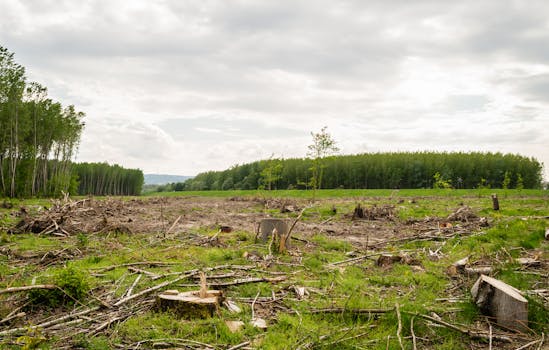
The Impact of Climate Change on Global Ecosystems – Climate change is one of the most pressing issues of our time, affecting ecosystems around the globe. The rise in global temperatures, changing precipitation patterns, and increasing frequency of extreme weather events are all consequences of climate change that have significant impacts on the natural world.
Section 1: Biodiversity Loss
One of the most alarming effects of climate change is the loss of biodiversity. As temperatures rise, many species are forced to migrate to cooler areas, disrupting existing ecosystems. For example, polar bears are losing their sea ice habitats due to melting ice caps, which not only threatens their survival but also impacts the entire food web of the Arctic region.
Furthermore, the extinction rate of species is accelerating, with many scientists estimating that we are currently experiencing the sixth mass extinction. Coral reefs, which support a vast array of marine life, are particularly vulnerable. Increased ocean temperatures lead to coral bleaching, resulting in the death of these vital ecosystems.
Section 2: Alteration of Habitats
Climate change is also altering habitats across the globe. Forests, wetlands, and grasslands are changing in response to shifting climate conditions. For instance, forest areas are experiencing shifts in tree species composition, which can disrupt the animals that depend on those trees for food and shelter.
Wetlands, which act as natural buffers against flooding and are crucial for water filtration, are at risk due to rising sea levels. The loss of these habitats not only affects wildlife but also impacts human communities that rely on them for clean water and protection from storms.
Section 3: Ocean Changes
The oceans are experiencing significant changes due to climate change, including acidification, warming waters, and altered currents. Ocean acidification, caused by the absorption of excess carbon dioxide, poses a serious threat to marine life, particularly organisms with calcium carbonate shells, such as mollusks and some plankton species.
Warming ocean temperatures affect fish migration patterns and breeding cycles, leading to changes in marine biodiversity. Commercial fishing industries are facing challenges as fish populations shift to cooler waters, impacting local economies and food security.
Section 4: Human Impact and Mitigation
The impact of climate change on ecosystems also has profound implications for human health and well-being. As ecosystems are disrupted, the services they provide, such as pollination, clean water, and disease regulation, are compromised. This can lead to increased health risks and economic challenges for communities worldwide.
Mitigation strategies are essential to address these challenges. Efforts to reduce greenhouse gas emissions, restore habitats, and promote sustainable practices can help protect ecosystems. Education and awareness are also crucial in mobilizing communities to take action against climate change.
Conclusion
In conclusion, climate change poses a significant threat to global ecosystems, leading to biodiversity loss, habitat alteration, and economic challenges. It is imperative that we recognize the urgency of this issue and take action to mitigate its effects. By working together to protect our planet, we can safeguard the future of our ecosystems and ensure a healthy environment for generations to come.



